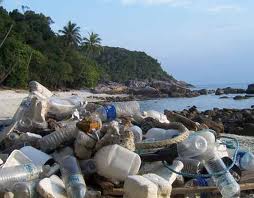
It was only after getting home from the packed and
enthusiastically-received Suzuki/Rubin lecture last night that the oddness of what
was a very successful evening really struck me. Here were an environmentalist
and an economist saying that the world is on the edge of catastrophe, that the
price of oil and the environmental consequences of heedless consumerism and
industrialism were about to lead to radical economic and social dislocation,
and we were all eagerly lapping it up. Was it because we really didn’t believe
it, or because the message was too big to grasp all at once? In retrospect, I
was reminded of the famous lines from T. S. Eliot’s “Burnt Norton”: “Go, go, go
said the bird: human kind/Cannot bear very much reality.” Daily it seems we are
provided with individual and social evidence of our ability to ignore what we
don’t want to know, and if there is a cliff we’re approaching, it’s very likely
that we will blithely and ignorantly step over the edge with our noses glued to
the screens of our iPads.
Both David Suzuki and Jeff Rubin agreed on one thing: the period
of rapid economic growth that has characterized most of the twentieth century
was, historically speaking, an exception rather than a rule, and that exception
is about to end. Further, both agreed that, however painful that ending is,
it’s necessary for the environment and, ultimately, for humans. So do we need
to pack away the idea that our children’s lives will be better than ours?
According to Suzuki and Rubin, in terms of our current definition of better
(more money, more stuff), definitely. The end of cheap oil, rising populations,
and increasing environmental degradation will lead inevitably to a global correction—the
only question is whether that correction will be undertaken in a voluntary,
organized way, or whether it will be imposed on us through a series of insurmountable
economic, social, and environmental crises.

But a good part of Suzuki’s speech for the evening was also devoted
to making the audience re-examine just what the word “better” means. When the
government of Ecuador passed up the chance to exploit massive oil reserves
because they sit under a national park that is likely the most biodiverse area
on the planet, they decided to forego one definition of better for another that
is broader in its scope and more long-lasting in its impact. And, as Suzuki
pointed out, though Ecuador is one of the poorest countries in South America,
its sense of vision and stewardship put to shame the policies and people of
richer countries such as ours.
While Suzuki frequently cited the laws of science and nature
throughout the evening, Rubin leaned on the laws of economics, and that led to
some interesting differences of opinion. For Suzuki, economics is just a human
construct that should serve larger ends, but Rubin for his part asserted that,
while it was good to imagine ideal situations, as an economist, he had to deal
with “the world as it is was rather than the world as it should be.” (I had
reservations about both stances—in practical terms, surely we’re as bound, if
not more bound, by our own constructions as we are by reality itself, and
dealing with the world as it is may be a sound principle, and I believe Rubin
is an excellent example of it, but given the 2008 recession, economics as a
field can scarcely claim to be in touch with the world as it is.) So while
Suzuki advocated carbon taxes, Rubin was skeptical that they could be implemented
in hard economic times, and while Suzuki promoted public education, Rubin
focused more on economic and environmental consequences as motivators.

The challenge for David Suzuki, as for many environmentalists, is
that however important and accurate their message is, most people basically know it—or think
they know it—already. When it comes to uncontrolled, unsustainable growth, collectively
we’re like a person whose purse is stuffed with pamphlets about why she should
kick her smoking habit, but who nonetheless remains hooked. Adding Jeff
Rubin to the mix made the audience’s collective ears perk up—he offered a fresh
perspective on issues and also refreshed Suzuki’s own message. As a pair, they
didn’t so much deliver a one-two knockout that left the audience on its back as plant a seed that, one hopes, will lead to a growing
awareness that bears fruit in committed action.
The Suzuki/Rubin presentation was part of the University of Guelph's College of Arts Cafe Philosophique series in partnership with the Bookshelf. Many thanks to Evan Fraser, an associate professor of geography at U of G who was a generous, enthusiastic, and capable host for the event, and to Dan Evans, the Bookshelf's event coordinator. For more information on issues raised at the event, see Jeff’s new book The End of Growth and David’s recent book Everything Under the Sun, or check out the David Suzuki Foundation.
- Bruce (& photos by Ben)

























